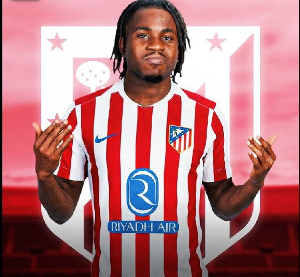Pontificating like a clown in a village square, some foreign religionists are fond of asking this question whenever they want to shade African religionists. They can even say all Òrìṣà are family Òrìṣà before it is enforced on a town, or entire community.
The premise of their argument is that since all Òrìṣà were once human beings who roamed the earth, they lived like all other human and have family before they died and were deified by their children, it is logical to conclude that you are worshipping the ancestor of a particular family, while neglecting yours. This argument is being marshaled by a presumed royal in Yorùbáland.
First, it is important to study Yorùbá spiritual system without smoking weeds, so that you will not lump misinformation, deliberate misinterpretation and fallacious reasoning together and reel it out with pomps and pageantry.
Second, if you could claim others cannot talk about your religion unless they have studied it from reputable practitioners, don't you think the same applies to the religion you want to meddle in and criticize?
Now to the point raised by alákatakítís, let's start with the meaning of Òrìṣà itself. You must have heard it means ẹni orí ṣà dá. Orí here is symbolic, it literally translates to head, but head of what? It means head of all, like the most Supreme or the Most High. This is why the leader is called olórí. This Supreme manifest in your body composition as your physical head. Your head controls every part of your body just like the spiritual Orí controls everything that exist.
You hear this expression in "Orí ni ẹlẹ́jọ́" (Orí is your best "lawyer+Judge" because ẹlẹ́jọ́ in this sense means someone who advocates on your behalf and punishes the guilt, even if it is you). Others expression include Orí mi, Ẹlẹ́dàá mi. (Orí, my creator) they are referring to the metaphysical Orí ably represented by the physical Ori. Compare this Orí with Olú in Olú ayé or Olú Ọ̀run and You discover it is an avatar of Olódùmarè.
It is this metaphysical Orí that chose some people for a particular purpose, and the choosing is not or earth but before they were born. The purpose they came to serve is not family purpose. It is mostly for the people entirely. That is why when they score success in their task they gain immortality and reverence in the heart of the people.
Concerning the nature and process of this choosing, opinions differ. Some would say the purpose and mission chose you, others would say you chose the mission, thus we demarcate between àkúnlẹ̀yàn (that which you kneel to choose) and àkúnlẹ̀gbà (that which is dole out to you on your kneel).
Consensus is that this is placed in igbá ìwà as àyànmọ́ in the house of Àjàlá. A good way that many thinkers solve this is that once you choose by yourself, you are ẹni, but once the purpose choose you, you are Òrìṣà because it was orì that must have chosen you for the purpose.
The reason why we take the pain to expatiate this is for the alétílápás, both royal and peasants, garrulously dishing out pedestrian logic on every platform they perceived as enemy of their religion.
The second reason for explaining is for you to see that the choice in Yorùbá belief system is different from the Arab system. Yorùbá choosing, whether akunleyan or akunlegba is prenatal. You choose it in the metaphysical realm before coming to this earth and your everyday life from day one manifests this. Not some wárápá like spirit possession that comes to you in your 20s. Spirit possession exists in Yorùbá land, but that is not how you become Òrìṣà. Rather you become a carrier of the spirit of that Òrìṣà e.g. ẹlẹ́gùn Ṣàngó.
Now you can see why we venerate somebody who came to fulfill the purpose for which orí chose him? It is because he or she carried the great spirit, to fulfill a purpose and the purpose is universally or communally beneficial as the case may be. Not family issue.
General News of Wednesday, 11 October 2023
Source: Mayegun, Comtributor













